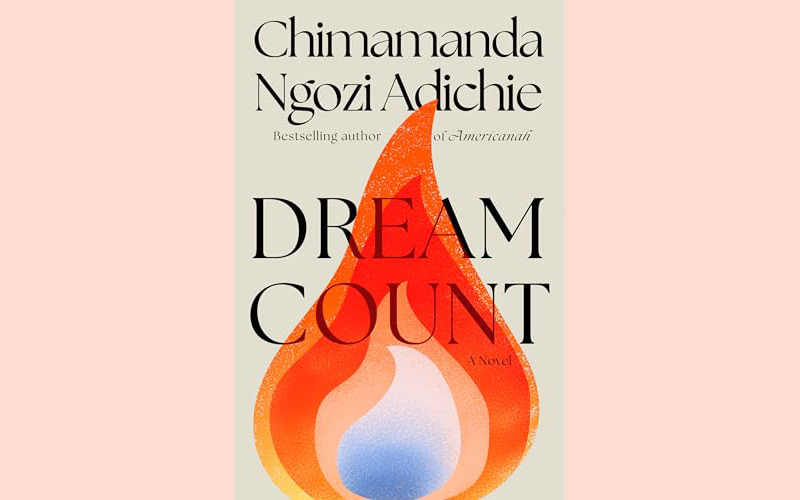Book review: Dream Count by Chimananda Ngozi Adichie
By Philippa Tracy
It has been more than 10 years since Chimananda Ngozi Adichie’s last novel, Americanah, was published. In the intervening years, she has lost both of her parents, had a daughter and twin sons, and delivered a brilliant BBC Reith Lecture on freedom of speech. Adiche is a feminist and a brilliant writer of big novels with complex themes. This one is essentially about women’s lives and mother-daughter relationships and is dedicated to her mother. The reader might correctly assume that her own life events, as well as wider world events, have influenced her. She says, in her notes at the end, it is really about, “losing my mother.”
The novel is set between Nigeria and the US and focuses on the lives and thoughts of four immigrant women. It is set against the backdrop of Covid lockdowns, when people had time to reflect and reassess past decisions and relationships. The first of the women, Chia, opens the novel with a powerful first-person narrative. Her opening line, “I have always longed to be known, truly known, by another human being,” points the reader to some major themes of the novel: relationships and identity. Chia also asks some of the deepest questions about relationships: “Is it to be a state of being, to live adrift in gratitude because a man loves you?”
Chia wants to be a travel writer and is disappointed when she realises one editor sees her “as an interpreter of struggles.” Mostly, she reminisces about past relationships and wonders about “the madness of my emotions.” She reflects on a number of men she has dated, and their inability to give her what she believes she needs in a partner. These include an academic with humourless, pretentious friends, who loves Paris, “because of James Baldwin.” And one serious marriage contender who she realises is not right when she sees, “his dutiful living room, its matching furniture,” and knows there are, “large swathes of me that he would never understand.”
While Chia’s “female eggs” are “in an unforgiving rush to uselessness,” her friend Zikora, a lawyer, has a story about men that is really about being a mother. The father of her child leaves her when he finds out she is pregnant. She calls men, “thieves of time” and the obstetrician who helps with her child’s birth “an obtuse man sermonising opaquely about an experience he would never have.” Chia’s cousin, Omelogor, with no husband, is under pressure from her family to adopt. As a successful banker, she redistributes stolen money to women trying to start a business. She gives men advice on a website called, For Men Only and gives up her banking job in Abuja to study pornography in the US.
Kadiatou, is a Guinean hotel maid. Her background is very different to the other three women but she is connected to them through her work for Chia. Her experience with men is the most shocking. The character is inspired by the story of Nafissatou Diallo, a Guinean immigrant who, in 2011, made accusations of sexual assault against Dominique Strauss-Kahn, then the head of the International Monetary Fund. Like Diallo, her story is about being “failed by a country she trusted” and destroyed by the press.
The title, Dream Count, creates an image of lost hopes and dreams, piling up like dead bodies. It includes musings on the male ego, women’s bodies, relationships, identity, culture and the pandemic. I was so excited to read this new novel; it did not disappoint. It is insightful and thoroughly enjoyable.






Click here to change your cookie preferences